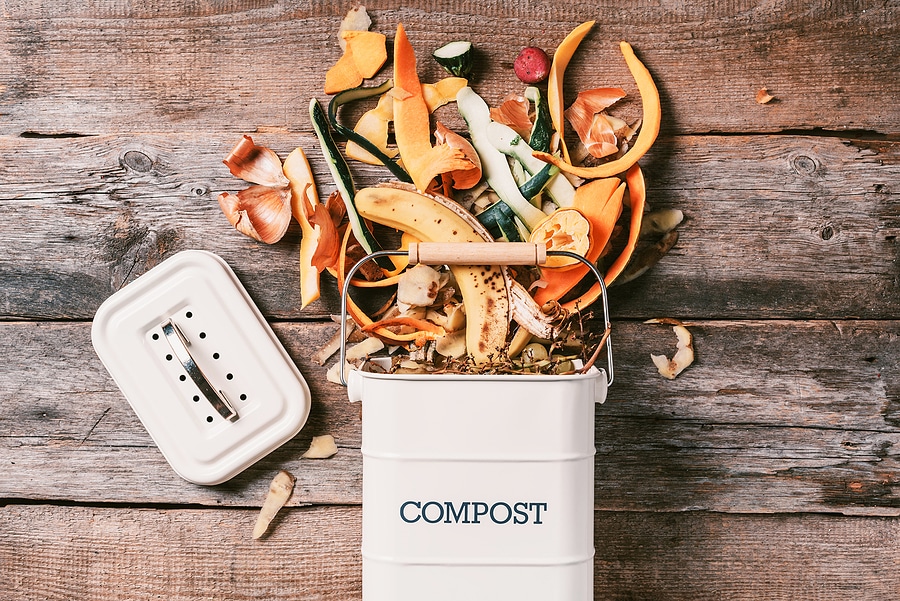What NYC Landlords Need to Know About Mandatory Composting

The New York City Department of Sanitation (DSNY) will launch curbside composting for all Bronx, Manhattan and Staten Island residents the week of October 6, 2024. Already available throughout Brooklyn and Queens, compost collection will now be required for New York City buildings of all sizes.
Part of the Zero Waste legislation passed by the New York City Council in June 2023, the composting mandate advances the city’s goal of eliminating recyclables and organic waste from landfills and incinerators by 2030. Food scraps make up one-third of New York City’s waste and contribute 20% of the city’s greenhouse gas emissions.
Landlord Requirements for Mandatory Composting
Owners of buildings with at least four units must provide a storage area and clearly labeled bin to collect compost material. Compost bins must have a secure lid and a maximum size of 55 gallons. DSNY recommends lining the bins with a clear plastic, paper or compostable bag to keep it clean. (NOTE: Daily food scraps can be collected in small plastic bags and discarded.)
Landlords in the Bronx, Manhattan and Staten Island can request free composting bins from DSNY at the links below:
Additional DSNY brown bins are available for online purchase. Building owners who use their own bins can order a free composting bin decal, which educates residents on what to compost.
Organic Waste for Composting
Many people are confused about what types of waste are compostable. The following items belong in compost bins:
- Food scraps. If you eat it or cook with it, you can compost it. This category includes fruit, vegetables, meat, bones, prepared food, etc.
- Food-soiled paper. Greasy pizza boxes, paper takeout containers and used napkins belong in this category, along with plates, towels, coffee filters and tea bags.
- Leaf and yard waste. Grass clippings, plants, twigs and leaves can all be recycled. If you’re collecting compost in a sealed bin, you can combine yard waste with food scraps and food-soiled paper.
NOTE: If you hire a commercial landscaper to maintain your property, that business must take away any generated yard waste. Landscapers are covered by the Commercial Organics Law.
How Curbside Composting Works
DSNY collects compost every week on recycling day. Place the designated compost bin at the curb after 6:00 p.m. the day before. DSNY requests that compost bin bags be tied before they’re set out for collection.
Collect overflow leaf and yard waste in a clear plastic bag or a paper lawn/leaf bag, and place it beside the composting bin on collection day. Bundle twigs and branches with twine for collection.
Curbside Composting Penalties & Resources
New York City is offering a grace period to help landlords and tenants adjust to the composting requirement, as well as educational materials to promote awareness and compliance.
Penalties for Composting Non-Compliance
Buildings are expected to comply with composting requirements once DSNY begins curbside composting in their neighborhoods, which goes into effect citywide the week of October 6. The city will issue written warnings for non-participation, but fines will not be assessed until April 1, 2025.
- Homes and buildings with up to 8 units. The first offense incurs a $25 fee, which climbs to $50 for the second offense and $100 for the third and any subsequent offenses.
- Buildings with 9+ units. Fines start at $100 and increase to $200 and $300, respectively, for second offenses and all future infractions.
Educational Materials on Composting
The following resources are available to encourage widespread adoption of composting.
- The city offers free educational materials on composting to help landlords communicate requirements and tips to tenants.
- DSNY is hosting virtual information sessions on curbside composting this fall, and a recorded session is also available for online viewing.
- Building management sessions on residential waste management are also scheduled, geared toward owners, property managers, superintendents and board members.
- Landlords can also request an on-site educational event from DSNY.
Visit the DSNY website for more information about curbside composting. For a complimentary, no-obligation insurance review, contact our office at 877-576-5200.

